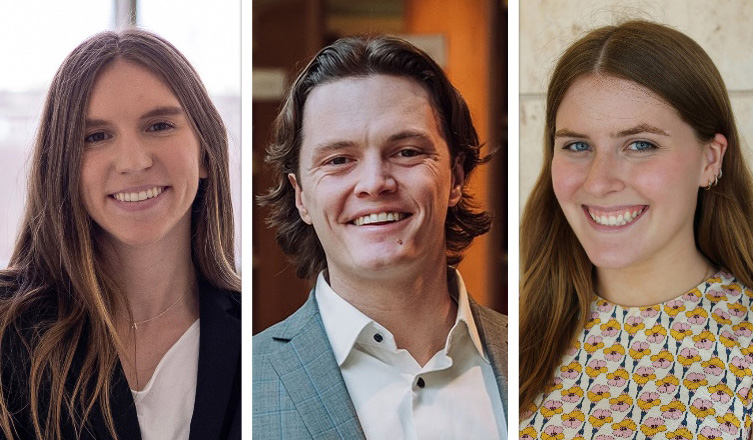
The National Oceanic and Atmospheric Administration’s National Sea Grant College Program is thrilled to announce the finalists for the 2025 class of the Knauss Marine Policy Fellowship. This year, for the first time in program history, all eligible Sea Grant programs are represented by a diverse cohort of 88 early-career professionals who will spend the next year working alongside federal agencies or legislative offices in Washington, D.C., applying their academic expertise to critical marine, coastal and Great Lakes policy issues. Illinois-Indiana Sea Grant will be represented by three Knauss finalists.
As in previous years, this year’s finalists were selected through a competitive process that involved review panels composed of national experts in marine science, policy and education. Over the past 45 years, the Knauss Fellowship has supported more than 1,680 students who have significantly contributed to environmental policy and management and built lasting careers.
“This year’s Knauss Fellowship cohort exemplifies the passion and expertise necessary to address the evolving challenges facing our coasts and oceans,” remarked Dr. Jonathan Pennock, Director of the National Sea Grant College Program. “We are confident that their dedication to serving through science will lead to innovative solutions that sustain coastal and marine resources and communities for future generations.”
The Knauss Fellowship is a one-year paid opportunity for current and recent graduates from advanced degree programs to apply their scientific knowledge and experiences to current issues in science, policy, and public administration. Students who are enrolled in or have recently completed master’s, Juris Doctor and Doctor of Philosophy programs with a focus and/or interest in marine and coastal science, policy, or management apply to one of the 33 eligible Sea Grant programs.
The 2025 finalists represent 70 universities across the country—including 10 minority serving institutions—comprising 44 master’s students, 41 Ph.D. candidates and three J.D. candidates. They are geographers, ichthyologists, ecologists, lawyers, environmental managers and more. They represent communities across the nation and are committed to making meaningful contributions to marine policy.
Two Illinois-Indiana Sea Grant finalists have been placed in executive positions—Alexandra Skinner, a master’s student in environmental science at Indiana University will work in the NOAA Office of International Affairs; and Emily Johnson, who is working towards her master’s degree in biology at Loyola University Chicago, will be in the NOAA Research Office of International Activities. Matthew Sheffield, a J.D. candidate at Indiana University, will be placed in a legislative position.

